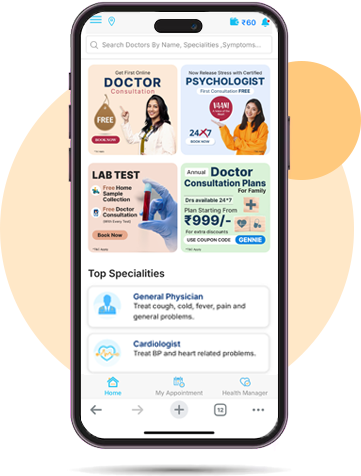What Are the Most Common Teenage Relationship Problems?
April 24 , 2024

Navigating the world of teenage relationships can be both exciting and challenging. As adolescents transition from childhood to adulthood, they encounter a myriad of relationship issues that can be overwhelming. From communication breakdowns to peer pressure and emotional insecurities, these challenges can strain even the strongest of bonds. In this article, we will delve into some of the most common teenage relationship problems and offer insightful strategies to overcome them. Understanding these issues can help teenagers, parents, and guardians support each other through the ups and downs of young love.
1. Communication Breakdown:
One of the most common issues in teenage relationships is a lack of effective communication. Teens are still learning how to express their feelings, needs, and boundaries. Misunderstandings can easily arise when partners don't communicate openly and honestly.
Tips for Teens:
- Practice active listening.
- Be honest about your feelings and concerns.
- Avoid making assumptions; ask clarifying questions instead.
Tips for Parents:
- Encourage open dialogue with your teen.
- Model healthy communication in your own relationships.
- Provide guidance on effective communication strategies.
2. Trust Issues:
Building and maintaining trust can be challenging for teenagers, especially when they're still learning to trust themselves and others. Trust issues can stem from past experiences, insecurities, or fear of betrayal.
Tips for Teens:
- Be consistent and reliable in your actions.
- Communicate openly about your feelings and anxieties.
- Give your partner space and privacy.
Tips for Parents:
- Foster a trusting relationship with your teen.
- Teach them the importance of honesty and integrity.
- Offer support and guidance when trust is broken.
3. Peer Pressure:
Teenagers often face pressure from their peers to conform to certain relationship norms or behaviours. This can lead to unhealthy relationships where partners feel pressured to act a certain way or make decisions, they're not comfortable with.
Tips for Teens:
- Stay true to yourself and your values.
- Surround yourself with helpful friends who respect your choices.
- Don't be afraid to set boundaries and say no when necessary.
Tips for Parents:
- Educate your teen about the threats of peer pressure.
- Encourage them to make self-determining decisions based on their own values and beliefs.
- Provide a safe and caring environment where they can express themselves freely.
4. Jealousy and Possessiveness:
Jealousy and possessiveness can be destructive forces in teenage relationships. These feelings often stem from insecurity, fear of losing the partner, or past experiences.
Tips for Teens:
- Trust your partner and give them the freedom to maintain their individuality.
- Communicate openly about your feelings of jealousy and insecurity.
- Work on building self-confidence and self-esteem.
Tips for Parents:
- Teach your teen the difference between healthy and unhealthy jealousy.
- Encourage them to build a strong sense of self-worth and independence.
- Offer guidance on how to handle jealousy and possessiveness in a mature and respectful manner.
5. Digital and Social Media Stress
Social media can create unrealistic relationship expectations and increase stress due to online arguments, constant comparisons, and privacy concerns.
Tips for Teens:
- Set boundaries for social media use within your relationship.
- Avoid comparing your relationship to idealized social media portrayals.
- Seek "teenage mental health counselling near me" if social media is affecting your well-being.
Tips for Parents:
- Educate your teen about the dangers of excessive social media use.
- Encourage a balance between online and offline relationships.
6. Emotional and Physical Boundaries
Many teenagers struggle to set and respect boundaries in relationships, leading to discomfort and misunderstandings.
Tips for Teens:
- Communicate your comfort levels and respect your partner’s boundaries.
- Never feel pressured to do something you’re uncomfortable with.
Tips for Parents:
- Teach your child about consent and the importance of setting clear boundaries.
- Encourage them to speak up when they feel uncomfortable.
7. Family Disapproval
Parents and family members may disapprove of teenage relationships due to cultural, social, or personal reasons, which can create additional stress.
Tips for Teens:
- Respect your family's concerns and try to have open discussions.
- Show maturity and responsibility in your relationship.
- If you need guidance, "book doctor consultation online" for professional advice.
Tips for Parents:
- Understand your teen’s perspective before making judgments.
- Support your teen while setting appropriate boundaries.
8. Breakups and Emotional Pain
Breakups can be emotionally devastating for teenagers, leading to feelings of sadness, anxiety, and even depression.
Tips for Teens:
- Allow yourself time to heal and avoid rushing into another relationship.
- Surround yourself with supportive friends and family.
- Seek help from Health Gennie a "teenage healthcare company" if you are struggling with emotional distress.
Tips for Parents:
- Be empathetic and provide emotional support during breakups.
- Encourage positive coping mechanisms like journaling, exercise, or counselling.
Consultation:
This article draws on insights from relationship experts, psychologists, and personal experiences to provide a comprehensive guide to common teenage relationship problems and practical solutions. It is essential to consult with professionals’ teenage mental health counselling near me and trusted individuals to tailor advice and support to individual needs and circumstances.
Conclusion:
Teenage relationships are an important part of growing up, but they also come with unique challenges. By fostering healthy communication, setting boundaries, and seeking support when needed, both teens and parents can navigate these challenges successfully. Whether it’s through teenage mental health counselling, online medical consultation, or simply having open conversations at home, there are plenty of ways to support teenage well-being.
If you or your teen is struggling with relationship issues, don’t hesitate to reach out to a best relationship counsellor near me or book doctor consultation online. Remember, help is always available!
Disclaimer:
The information on this blog is not a substitute for any professional medical diagnosis or treatment. The blog contains text, images or graphics are solely for informational purpose. Before implementing the information mentioned above, seek the advice of a professional doctor regarding any doubt or question you may have about the medical condition or treatment. Also, take the advice of a professional health care provider before making changes in your health care routine.











